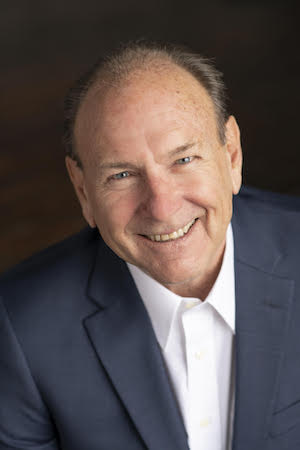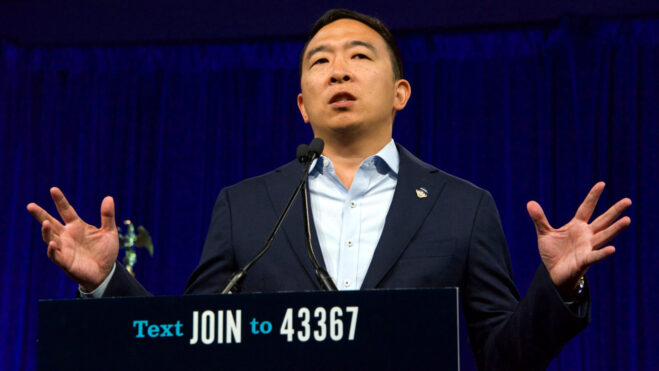Schuetz: Information Asymmetry In Regulatory Capture
It’s never been more clear that the operators know who the vulnerable players are
6 min

“An economist is an expert who will know tomorrow why the things he predicted yesterday didn’t happen today.”
—Laurence Peter, known for “The Peter Principle”
Casino Reports recently published an article I wrote about gaming lawyer Matthew Litt, which ended with a statement Matthew made: “All I am asking is that the operators leave the vulnerable people alone, and they know who they are.”
The point of Matthew’s quote that really grabbed me was “and they know who they are.”
My old priest friend from Laguna Beach, Father Bob, would have referred to this as a brilliant flash of the obvious (he called it a BFO). Of course, the operators know who the vulnerable people are; my god, it is their business to know who they are. To suggest that the operators do not know who the vulnerable are is silly. Yet it took a non-casino lawyer-guy to bring this BFO to my attention.
Many moons ago, I was in charge of the casino operations at the Stardust, shortly after they had thrown the supposed “mob guys” out of the joint. For those of you who don’t know, the Stardust was the model for the movie Casino. And one can say what one wants about mob guys in the casino business, but one thing that was very clear to me was that the mob guys knew how to run a joint.
Sure, they were awful at accounting and could never seem to get the revenue figures right, but hey, who hasn’t struggled with accounting around tax time? But when it came to running a joint by making the customers feel welcome, treating them right, generating lots of action, keeping the booze flowing, and having great eye-candy around … well, the supposed mob guys knew what they were doing.
When one thinks about it, it only makes sense that the mob guys in Vegas knew how to run a joint, for they had been running them for many, many years in places like Chicago, Miami, New York, Dallas, and so forth. They knew how to run a joint, for they had been running joints for decades.
If the Nevada gaming regulators had not gotten so self-important back in the old days and run the mob out of town, the modern regulators would not have been so embarrassed by the recent antics of the money laundering taking place in seemingly clear view at MGM, Wynn, and Resorts World, for which they have all recently paid enormous fines. There would have been professionals running those joints, rather than the amateurs who have occupied so much of Robert Cipriani’s and the Nevada regulators’ time.
Fed information
One of the attributes of the Stardust was that it had a fantastic race & sports book that was clearly first in class. I quickly noticed that the feds relied on us for information. Because we had huge limits in our book, if someone was up to mischief, well, there was a high likelihood that a good chunk of the money would hit our counter. Because of this, I would occasionally pick up the phone and pass information on to the FBI. The main bit of information that I would pass on was that there was a lot of money flowing in a direction that we did not understand, and we would let the FBI know what did not make sense to us and what we understood about the money.
What gave us credibility in this area was our employees behind the counter, led by our sportsbook head, Scott Schettler. We had a ton of years of experience behind that counter and in management, and it was not unusual for a writer to have over a decade of experience, plus Scott had been around forever. And this may not make sense to all of you, but to me, it was damned important. If they couldn’t understand what was happening, it bothered me because I respected their experience. And if it bothered them enough, I would get on the phone.
The point I am making, in understanding the betting business and what is going on, is that an experienced staff was critical in the old days. What is essential to understand about the bookie business today, as it operates across the internet, is that there is a ton of information being collected, and much of that information creates an incredibly deep profile of the player. Unfortunately, this profile can be used to ruin a bettor’s life — and it is.
People whose lives are destroyed by sports betting often find their way to Matt Litt, and Matt sees the multitudinous emails, interviews, phone logs, and the like, which, when read in context, clearly indicate that what is happening is not some recreational player having some fun. No, it is a roadmap of someone fundamentally broken and not behaving in a way that essentially any sentient being could consider normal — and an operator exploiting this weakness.
By way of reference, when I suggest that something is exploitative and abusive beyond a shadow of a doubt, I suggest that people read the story about the D’Alessandro family here. It appears that the brain trust at DraftKings thought this was all cool. I envision high-fives all around.
I bring this up as an example of regulatory capture, a topic I have often written about. See here, here, here, and here.
Who’s the boss?
The notion of a capture theory of regulation is normally associated with George Stigler. It basically suggests that regulators often end up serving the industry being regulated, rather than the interests of the public. Notably, most economists strongly believe in the principle of capture, and it is one of the few topics in economics where there is material agreement.
The most common form of capture is that the industry being regulated hires a great many ex-regulators. The message here is that if you help us as a regulator, we will repay the favor by hiring you within the industry, where you can earn a substantial income. The U.S. Securities and Exchange Commission (SEC) is often cited as an example of this, and there are clearly a great many ex-regulators operating within the betting space today.
Another form of capture was initially explored by George Akerlof, who, like Stigler, received the Nobel Prize in Economics. Akerlof explored what happens when there is asymmetric information in markets between regulators and the industries they regulate.
In regulated industries, Akerlof argues that the industry often has much better data and information than do the regulators. The regulators, therefore, become dependent upon the industry to provide insight as to what is taking place within the industry. This imbalance in knowledge and information allows the industry to capture the regulatory process by providing it with insights and information that advantage the industry.
At least some regulators want answers
A seemingly relevant example of this was demonstrated when the Massachusetts Gaming Commission (MGC) made an effort last year to better understand the notion of betting limits that was part of the accusation from people like me that the betting industry was employing a “ban or bankrupt” model.
What the MGC did was request the gaming operators attend an open meeting to discuss the issue. Well, the operators snubbed the MGC. I would argue that this supports the notion that the industry clearly had a great deal more information than did the regulators regarding the notions of banning and bankrupting, and did not want to share this information, for it would place them in a bad light.
For the redo of the first blown meeting, the MGC held a second, and the industry reps appeared to be behaving like the Mormon Tabernacle Choir, well-rehearsed singing from the same song sheet.
The point is that the industry is clearly slow-playing any efforts of the regulators to find out how they operate. This implies that regulators across the United States are sitting in their offices, having no idea of the abuses taking place against people who are being encouraged to gamble, who should not be gambling in their jurisdictions.
I often wonder what the New Jersey regulators feel when they read about the D’Alessandro family, thinking that while they were doing important regulatory stuff, like holding lots of meetings and attending conferences with the operators, a family was being destroyed, and they had no idea. This gives new meaning to regulatory failure. I doubt the New Jersey regulators will include this fact in their resumes.
The reality of all of this is that we have very little insight as to what is going on in the belly of the beast, combined with operators who have demonstrated complete indifference to ruining people’s lives, and regulators who either don’t know or are cool with not knowing. Moreover, the operators are not overly intimidated by the ultimate penalty, which, in the worst case, is an irrelevant fine.
Allow me to get a bit nostalgic, but there was a time in the industry — and this was really the whole point of licensing — where character, honesty, and integrity were important qualities for the industry participants to possess, be they operators or regulators.
I miss those days.
—
Richard Schuetz entered the gaming industry working nights as a blackjack and dice dealer while attending college and has since served in many capacities within the industry, including operations, finance, and marketing. He has held senior executive positions up to and including CEO in jurisdictions across the United States, including the gaming markets of Las Vegas, Atlantic City, Reno/Tahoe, Laughlin, Minnesota, Mississippi, and Louisiana. In addition, he has consulted and taught around the globe and served as a member of the California Gambling Control Commission and executive director of the Bermuda Casino Gaming Commission. He also publishes extensively on gaming, gaming regulation, diversity, and gaming history. Schuetz is the CEO of American Bettors’ Voice, a non-profit organization dedicated to giving sports bettors a seat at the table.







